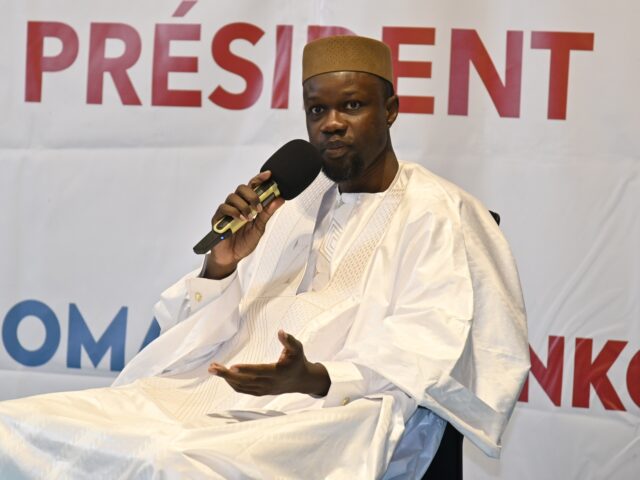Senegal’s outspoken and combative opposition leader Ousmane Sonko was disqualified from running for president in the March 24 presidential election, but he had the last laugh on Thursday when his former lieutenant Bassirou Diomaye Faye appointed him as prime minister. Faye ran in Sonko’s place and won a resounding victory with over 54 percent of the vote.
Sonko and Faye are both former tax inspectors who despised incumbent President Macky Sall, who had been in power as president since 2012 and was also prime minister from 2004 to 2007.
Sall toyed with running for an unconstitutional third term as president before relenting under growing domestic protests and international pressure in July. He chose former prime minister Amadou Ba to run in his place, but Ba won only 35 percent of the presidential vote.
The opposition leaders ran as youthful candidates opposed to corruption. Faye became Senegal’s youngest-ever president when he was sworn in on Tuesday. He was a relatively obscure figure before Sonko tapped him to run for the presidency in his stead, having been disqualified by a conviction for defaming Senegal’s tourism minister.
Sonko was also accused of sexual assault in 2021. He dismissed all the charges against him as “judicial banditry,” a political hit job designed to keep him from an office he would easily win in a fair election. He proved it by urging his supporters to flood the polls and sweep the more mild-mannered Faye into office as a rebuke against the Senegalese establishment.
“Bassirou is me,” Sonko told his supporters, appearing with the presidential candidate at rallies under banners that said “DIOMAYE IS SONKO” and “OUSMANE IS DIOMAYE.”
Faye himself was convicted last April of defamation and contempt of court for criticizing the justice system in a Facebook post. He emerged from jail just ten days before winning the presidential election.
Sonko and Faye are both Muslims, like most of the Senegalese population. Faye has two wives, while Sonko has proposed “harsher laws against homosexuality,” even though “gay sex is already punishable by jail time,” as Reuters observed.
Sonko “drew criticism in May from women’s groups and dozens of well-known figures for making degrading comments against the alleged victim during his rape trial, which they said showed he was unfit for higher office,” Reuters added.
Both of Senegal’s new leaders are also highly critical of former colonial power France, which is watching developments warily and hoping for a “reset” in relations. Faye ran on a platform of “rupture” with both the Senegalese establishment and French government, stressing the need for greater sovereignty. Among other things, he wants to withdraw Senegal from the West African CFA franc, a currency created by France a century ago and currently linked to the euro.
Faye seems more focused on anti-corruption and poverty reforms than cultural issues, leaving Senegal-watchers to wonder which of them will prove more influential in the new government. Most of their supporters assume Faye and Sonko will govern as co-leaders or partners, with Faye handling most of the administrative details.
“[Faye has] never been a minister and wasn’t a statesman so critics question his lack of experience. But, from Faye’s point of view, the insiders who’ve run the country since 1960 have made some catastrophic failures,” analyst Alioune Tine told the BBC.

COMMENTS
Please let us know if you're having issues with commenting.